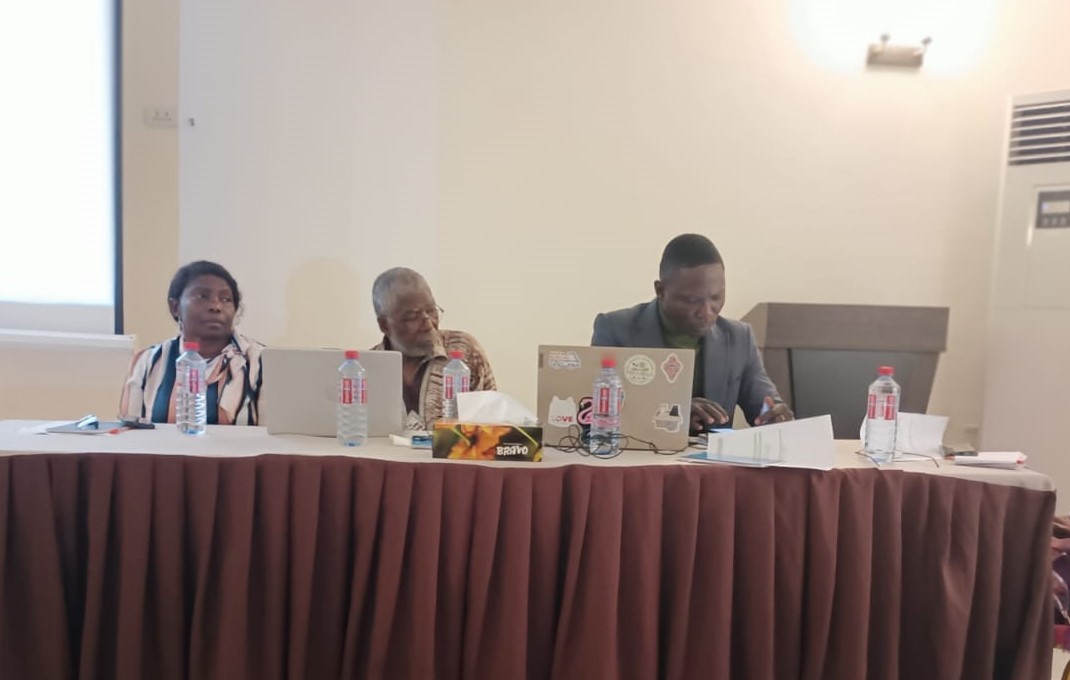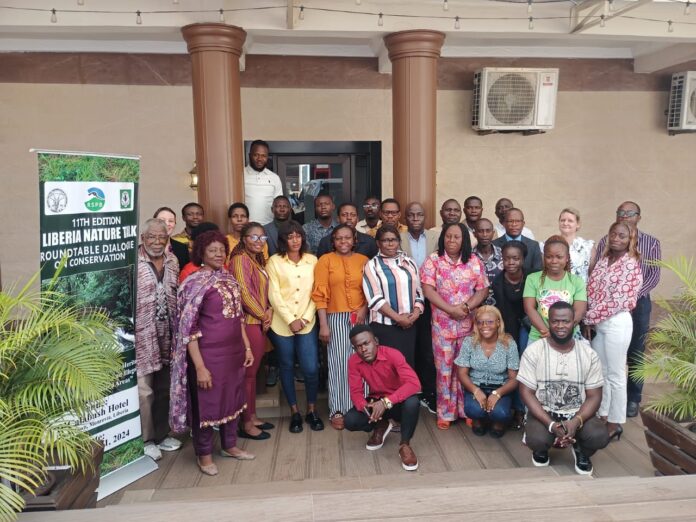The Society for the Conservation of Nature of Liberia (SCNL), in collaboration with its partners, has concluded a day-long policy dialogue aimed at effectively managing the country’s natural resources by addressing poaching and illegal mining in protected forest areas.
The dialogue was held under SCNL’s “Natural Talk,” a program designed to create policy directions for combating bushmeat trade, deforestation, and illegal mining in protected forest areas across the country. It was attended by representatives from the Ministries of Justice, Mines and Energy, the Forestry Development Authority, conservationists in Liberia, and students studying environmental science at various universities in Monrovia.
Representatives from the Royal Society for the Conservation of Birds, the U.S. Forest Service, the UK Embassy, the European Union Delegation to Liberia, and the Environmental Protection Agency were also present.
In his opening address, SCNL Program Manager Michael E. Tiare stated that the dialogue is part of Liberia’s commitment to biodiversity conservation in tackling poaching and illegal mining in protected areas. “This dialogue is not only for raising public awareness but also to foster open communication and collaboration among the various stakeholders regarding the challenges threatening these protected areas,” Mr. Tiare said.
The Deputy Managing Director for Administration and Finance, Mr. Victor W. Kpesiah, acknowledged the destruction caused by illegal mining, which is negatively impacting the forestry sector. He called for a collective effort involving forest communities to combat illegal mining and poaching, emphasizing that communities need to understand that allowing illegal activities harms not only the government or the FDA but also themselves. “The news about illicit mining and poaching in our country is alarming. The FDA and other partners are actively working to protect the forest,” he said.
He emphasized the growing issue of crimes occurring daily in the forest and mentioned the FDA’s recent community engagements around the Sapo National Park, where residents expressed a desire to take control of their activities. “Our next approach is to train more law enforcement rangers. We are currently working on proposals and discussions with our partners to assist in the training process. We also appeal to the government for help so that our law enforcement officers can be better equipped,” he added.
Mr. Kpesiah highlighted a specific community in the Sapo National Park called Afghanistan, where residents have claimed that no FDA staff can access the area and that they are armed. “We want to thank SCNL and other partners for initiating this dialogue to address these critical conservation issues.”
Panel Discussion
During the panel discussion, three experts; Dr. Samuel N. Koffa, a Senior Research Scientist and Consultant; Mr. Adolphus M.D.G. Gleekia, Deputy Inspector General of Mines and Energy; and Madam Evangeline Swope, FDA Protected Area Manager shared their perspectives on illegal mining and poaching.

Madam Swope highlighted the severe destruction occurring in the Sapo National Park due to well-coordinated and entrenched illegal miners and hunters. She noted that some illegal mining activities around and within the National Park are being conducted by individuals from China.
Mr. Gleekia disclosed that the Ministry of Mines is actively involved in combating illegal mining and has not, and will not, grant mining licenses in protected areas. He affirmed that the Ministry adheres to the law that established protected areas and is prepared to work collaboratively with the FDA where necessary.
In contrast, Dr. Koffa underscored the need for the government, through the FDA, to take practical measures to address the threats to the country’s biodiversity by implementing sustainable alternative livelihood programs for forest communities.
Call for Proactive Actions
Dr. Annika Hillers, the Country Director of the Wild Chimpanzee Foundation and keynote speaker, emphasized the urgent need for the government to take proactive action against ongoing illegal mining and poaching in various parks, particularly the Sapo National Park. She warned that the current treatment of the Sapo National Park undermines conservation efforts in Liberia and stressed the importance of collective and concrete actions to protect the park.
The dialogue, attended by more than thirty participants, marked the 11th edition of the “Natural Talk” series.






















